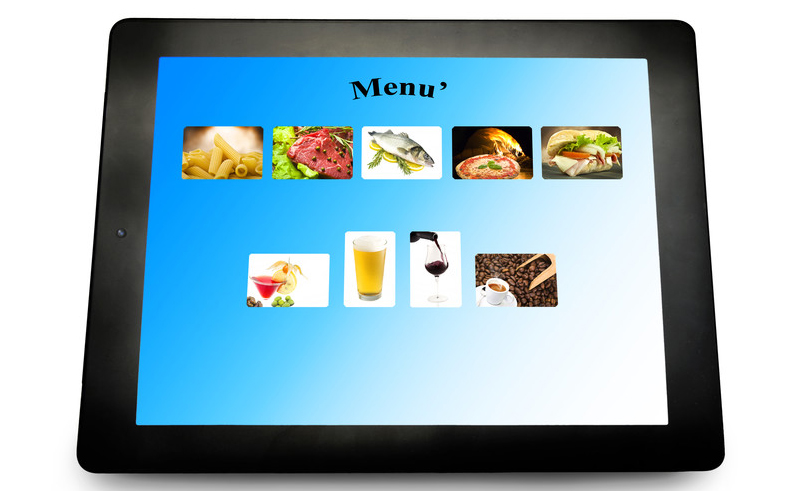With various technological advancements and changing customer demands, restaurant owners are automating restaurant operations. One of the main things that restaurants can automate are menus. An experienced data entry company offering speedy and accurate data entry services can help digitize the restaurant menu quickly. Digital menu has grown rapidly to become a preferred option for many people. It is faster, more convenient and provides you with an entire restaurant’s offerings through apps. In digital menu, every food item or drink is accompanied by a detailed description, image or even video content. The meals are classified in categories that allow easier access to the restaurant’s offerings and full navigation through the menu. It also allows guests to rate food and drink and leave their own comments for each dish. This is a useful option as other guests can easily select dishes based on their tastes and recommendations not only from restaurant owners but also other guests who have already tried those dishes. Menus can be entered in several languages, depending on the desire and needs of caterers. In addition to browsing the menu, guests have the option to order food themselves and later add up the food or drink in their order. This in turn makes the ordering process much easier, faster, and more fun. A digital menu helps reduce the waiting time and there is no unpleasant waving or turning around with the purpose of calling the waiter with various queries. With automated menus, the waiters need not walk around the restaurant trying to locate people who are calling them or keep coming back to the same table to check whether the guests have decided what to order or if they want to add something to their order. Instead, they can focus on their work, pay more attention to their guests and quickly, efficiently serve them. Digital menus allow better and faster communication between guests and waiters serving more than one table at the same time, help eliminate wrong order complaints, long waits to make an order and anxious guests, increased circulation of guests, introduction of menu changes on a daily basis if needed, and boundless creativity in preparing the menus. Electronic menus can make the menu accessible on all devices from PCs to tablets and mobile phones. Furthermore, relying on digital menus instead of print can minimize the cost incurred in printing.

Other benefits of digital menus include:
- Includes high resolution photos of the food served – Digital restaurant menus include high resolution photos of the food served. This was difficult or impossible with printed menus due to cost and printing restrictions.
- Increases accuracy in ordering – These menus help enhance accuracy in ordering. When a user can choose an item from the menu directly instead of trying to communicate it verbally with the waiter, the chances for mistakes are greatly reduced. This helps reduce the cost of having to send out a replacement order or worse, lose a customer.
- Provide additional nutritional information – Electronic menus are not restricted by space or margins. They can include additional nutritional information such as details on gluten free ordering, diabetic recommendations and markers as well as other information that may not make it into a paper menu.
- Easy to update – Digital restaurant menus can be updated frequently in creative and fun ways. They can be updated to include new deals, combos, offers, or tweaks in pricing which could be delayed in print due to the cost or other factors. The benefit of restaurant menu digitization is even greater for larger restaurant chains, due to the volume of menus in circulation.
- Up sell menu items – Electronic menus can up sell or recommend paired dishes automatically; this in turn results in higher sales as well as revenue and better customer satisfaction.
- Several languages – It is easier to produce digital menus in multiple languages. This helps cater to a larger number of customers than if they were only printed in one language.
- Accelerate Service – With automated process, your staff can attend to your guests more efficiently and ensure less waiting time for the customers.
- Better customer experience – An electronic menu offers your customers a menu with vivid pictures, food descriptions, etc. giving them a fresh, memorable, and unique interactive experience.
Reliable data entry companies offer restaurant menu data entry to speed up the creation and use of innovative digital menus. Restaurants that are still using only paper menus or whose digital menus are out of date, must switch to the digital format as soon as possible. The fast food giant McDonald’s has adopted new digital menu displays that feature things like changing menus depending on the time of the day or depending on the weather to increase incentives to purchase certain foods. It has been reported that digital menus have increased sales in Canada by 3-3.5 percent. A study by McKinsey Global Institute says that 54 percent of tasks performed in restaurants and hotels can be automated. In fact, restaurants that embrace automation can increase customer satisfaction, cut costs and focus their efforts on customer service. Some of the other areas that restaurants can automate to promote success and efficiency are as follows:
Food Preparation
With automation, the restaurant can focus on efficiency and service in other areas such as the drive-thru and attending to customers in the dining area. For instance, many of Arby’s famous roast-beef sandwiches are now made by automated ovens that roast the beef overnight. This eliminated the need for employees to arrive at 7 a.m. just to start the three-hour roasting process.
Ordering and Paying
Another form of automation is allowing customers to pre-order through their mobiles. Customers place their orders and pay on a mobile app, instead of waiting in line inside the establishment or in the drive-thru. This helps reduce the task volume for cashiers and chances of human error.
Major food chains such as Starbucks have already leveraged the power of mobile to optimize their order and pay operations. Another leading fast food company, McDonalds has started mobile order and pay in 20,000 locations worldwide.
Staff Scheduling
Employee scheduling is important to business. However, it is a tedious and time-consuming task. Reaching a large number of employees via email or phone calls may be impractical when it comes to urgent notifications like shift moves and event updates. An automated text messaging system or app notifications allows companies to contact staff efficiently. For instance, apps allow employees to text within the app, search for substitutes, swap shifts, request and schedule vacation days and other scheduling tasks that can be performed immediately, which in turn results in better and faster scheduling.
Training
Employee training is a labor-intensive process that requires hours of a manager’s time as they go through company rules and regulations and train employees on hands-on tasks. Using virtual reality software, the on boarding process can be automated, allowing new hires to tour a facility and attend training sessions virtually. It allows employees to take tests on training content through games and other interactive programs, thus making the training experience more enjoyable for the employee. It also helps reduce the managerial training tasks as employees complete training programs off-site.
Communication
Managers need to communicate time-sensitive information such as a new pay schedule, the opening of a new franchise, about an early closing due to weather, or any number of other issues to their crew members. Mobile messaging is an efficient way to reach employees. The instant mobile communication can be automated and managers can easily schedule texts, respond to common questions with automated templates, and segment employees into groups.
Nowadays, smart restaurateurs are automating their restaurant operations to reduce the chances of errors and increase customer satisfaction manifold.



